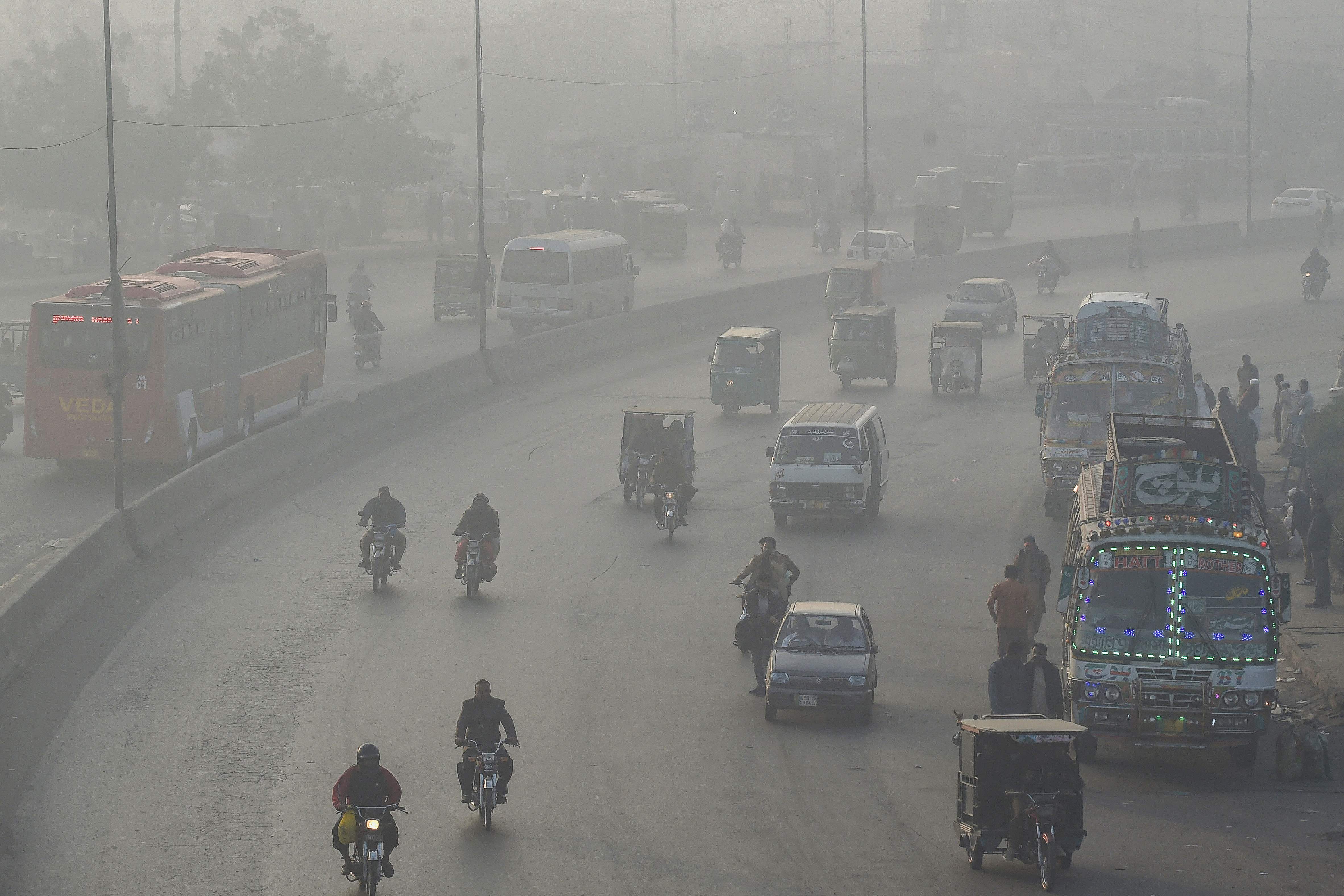Pakistan orders closure of private offices and schools on Mondays in Lahore to combat toxic smog
Residents of the northern city will have an extended weekend so its air pollution problem can be tackled

Your support helps us to tell the story
From reproductive rights to climate change to Big Tech, The Independent is on the ground when the story is developing. Whether it's investigating the financials of Elon Musk's pro-Trump PAC or producing our latest documentary, 'The A Word', which shines a light on the American women fighting for reproductive rights, we know how important it is to parse out the facts from the messaging.
At such a critical moment in US history, we need reporters on the ground. Your donation allows us to keep sending journalists to speak to both sides of the story.
The Independent is trusted by Americans across the entire political spectrum. And unlike many other quality news outlets, we choose not to lock Americans out of our reporting and analysis with paywalls. We believe quality journalism should be available to everyone, paid for by those who can afford it.
Your support makes all the difference.Pakistan’s northern Lahore city will implement lockdown-like measures by extending its weekends until mid-January next year to tackle toxic smog that has blanketed the country’s agrarian states during the winter season.
Authorities in the country’s second-largest city and the capital of Punjab province will shut schools and offices every Monday until 15 January 2022, leading to an extended weekend in an attempt to reign in choking air pollution, which has led to clouds of thick brown smog engulfing the city and its surrounding areas.
Punjab’s relief commissioner Babar Hayat Tarar said in his directive that the efforts were aimed to act “as a preventive and speedy remedy” to combat air quality levels that have shot up in Lahore and the areas surrounding the city.
The directive stated that the efforts were being taken after the “persistent deterioration in Air Quality Index of the city of Lahore, fluctuating from satisfactory to poor levels, which is likely to cause breathing discomfort, respiratory tract diseases and heart diseases.”
The order will only be enforced in Lahore and the territorial limits of Lahore’s metropolitan corporation, after the city had earlier topped a list of cities with the most polluted air in the world after the air quality level shot up to 300, according to IQAir, a Swiss tech company that operates AirVisual, a real-time, air quality information monitoring platform.
The city’s current AQI has now dipped to 234, which is, however, still in the unhealthy category. An AQI level of 100 or below is considered moderate.
The cities of Pakistan’s Punjab province and India’s northern belt, including its side of Punjab, the northern Haryana and Uttar Pradesh states and national capital Delhi suffer dramatic increases in pollution levels every year, leaving millions of citizens on either side of the border gasping for breath.
Much like India, Pakistan’s air pollution is also the result of year-round emission sources such as transport, factories and construction activity.
The seasonal practice of crop burning, which turns into a visible smog as smoke mixes with fog as the winter air arrives, is yet another existential problem for which regional governments have failed to provide farmers with sustainable alternatives.
India’s Supreme Court, just days ago, unleashed a scathing attack on the federal government and Delhi’s state government, saying short-term measures taken by Delhi, similar to the one taken by Lahore, to shut schools and offices were “very ad hoc”.
“This is the national capital. Look at the signal we are sending to the world,” one of the Supreme Court judges, sitting in a three-judge bench, said on Wednesday.
Join our commenting forum
Join thought-provoking conversations, follow other Independent readers and see their replies
Comments